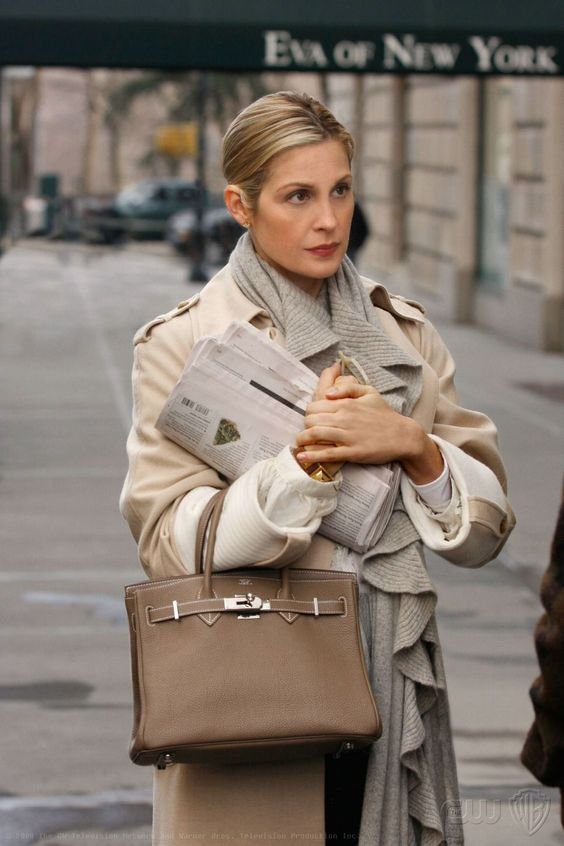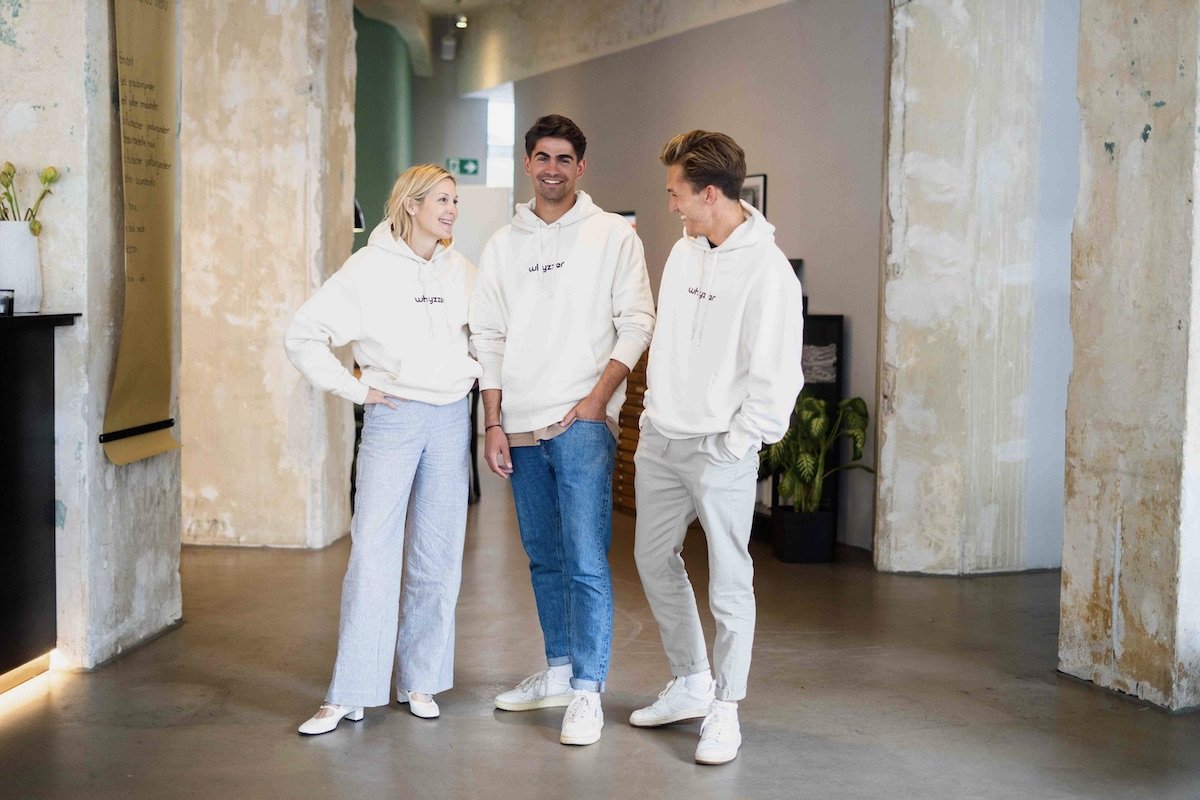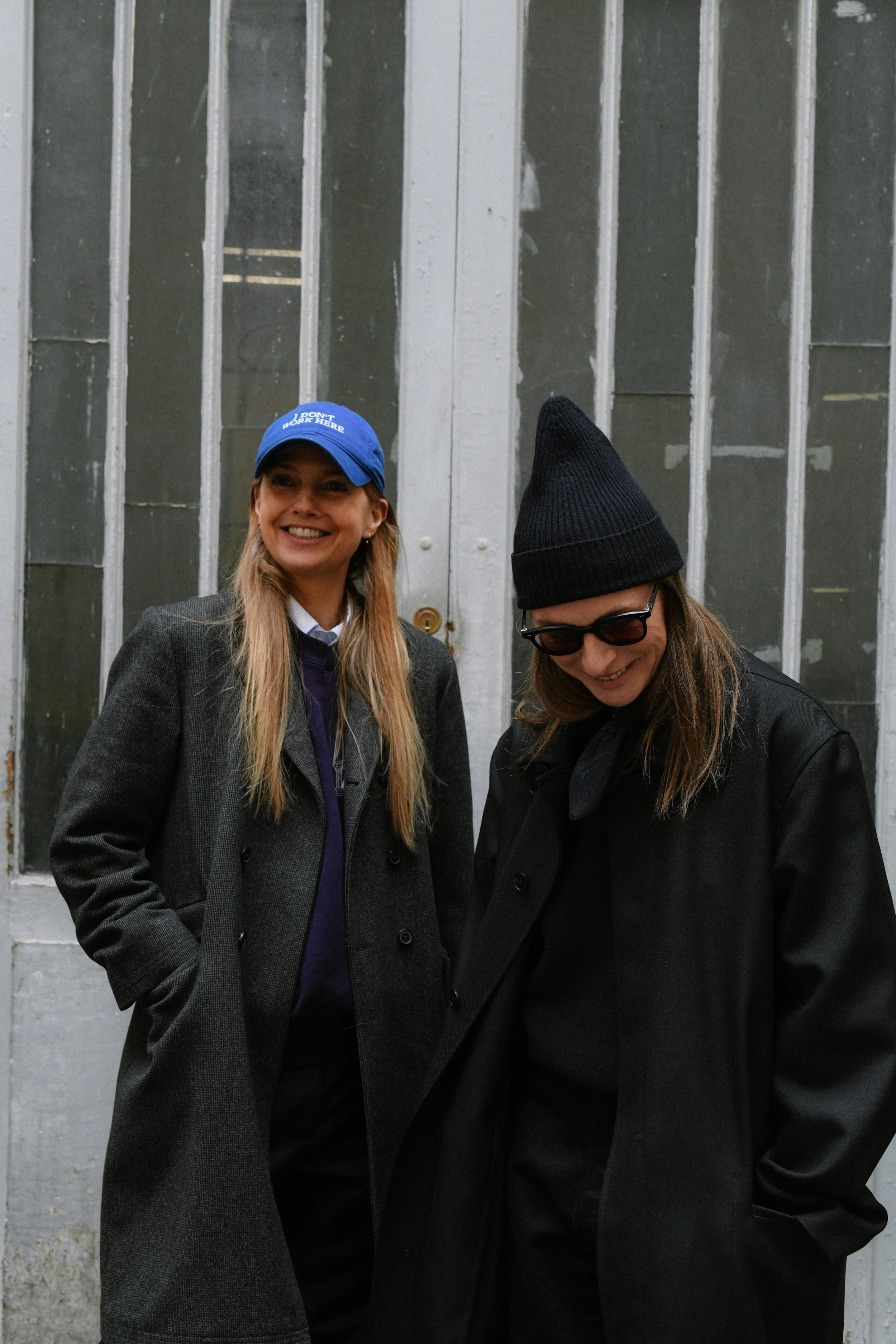Kelly Rutherford Is Much More Than TV’s Chicest Mom
Courtesy of Kelly Rutherford
Kelly Rutherford
Kelly Rutherford Is Much More Than TV’s Chicest Mom
By Bonnie Langedijk
Kelly Rutherford has been a fixture in television since 1996 when she strode onto TV screens as Megan Lewis on the primetime soap opera Melrose Place. In 2007, the wildly popular series Gossip Girl launched Rutherford into a new stream. Her role as the chicest mom on TV – Lily van der Woodsen – made Rutherford one of the most loved soap characters of our time and cemented her as an icon of style. Van der Woodsen’s collection of Hermès bags and Van Cleef & Arpels jewelry have recently found relevance in culture once again, as many try to replicate that ‘quiet luxury’ aesthetic of which Rutherford’s character was the archetype.
But things have changed since then. The end of the series that revolved around the lives of privileged upper-class adolescents living in Manhattan led Rutherford to playing roles in equally iconic films and TV series including Bones and the remake of Dynasty – as well as embarking on a new one. Amply proving that there’s life post Gossip Girl, the American actor has successfully diversified her interests beyond those of the average Upper East Side socialite. Alongside two co-founders, Rutherford invested in and co-founded Whyzzer, a social media app that allows you to share knowledge and connects you with industry experts. But we’ll let Kelly do the talking.
Courtesy of Kelly Rutherford.
Kelly in the role of Lily van der Woodsen in soap series Gossip Girl.
Bonnie: Are you in town for fashion week or just for fun?
Kelly: Kind of both. I love Paris but normally I'm only here for a short period of time. I usually don't really have time to relax or I'm jet lagged. It’s nice to just be in Paris and see friends.
I’m surprised you haven’t traveled to Paris just for fashion week before. You’re someone most would consider somewhat of a style icon.
Kelly: My mom was a model, and she loved fashion and style. When I was a kid, she modeled for Bill Blas. She used to come to Paris in the 70s and do the shows and all of that. Growing up, I always loved magazines. I think it’s part of being an actress, but fashion creates these worlds for us and I loved to see that woman in her world. Beyond fashion, I’ve always loved fabrics. So I also love interior design.
That’s the nice thing about Instagram, you can think about your style as one collective thing – from homeware to clothes to food.
Kelly: Yes, we can each create our own vision board or our own collage or brand.
“My mom was a MODEL, and she loved fashion and style. When I was a kid, she modeled for Bill Blas. ”
Talking about Instagram, I’m sure you’ve noticed that Lily van der Woodsen has returned as a style reference. It must be interesting for you to see Gossip Girl and the character you played become a cultural talking point again.
Kelly: It is. The character was influenced by all the women I grew up with. As I said, I always loved fashion. I bought my first Kelly bag in my 20s with the money I saved up from my first show, Melrose Place. At that time the prices of luxury bags were much lower. Back then it also wasn’t as cool as it is now. It was kind of geeky. It wasn’t whatever was trendy at that time. I was watching women like Catherine Deneuve, and my mom’s friends or my French friends. I loved the tradition of Hermès more than the fashion of it. I saw it as an investment piece that I could pass down to my daughter.
You wanted to invest in timeless design.
Kelly: Exactly. But Gossip Girl was the first time I could express my love of fashion through a show. I mean, I always tried to do it through other characters and other shows. But this was such an incredible opportunity to express it all.
Did you have input in developing Lily’s style?
Kelly: For sure. Eric Daman was super young when he started doing the costumes for the show. When I said Van Cleef & Arpels, he just kind of looked at me like: Okay, you want that, we'll get it. I understood what would really land the character on the Upper East Side. I would request the brands I loved or that I knew would resonate with this character. He was always so open to it. I would use my own handbags a lot and sometimes my own jewelry, because they just didn't have the budget when we first started filming. It was a creative collaboration with Eric. He was so cool.
Yes, I wanted to ask you about the rumor that the Hermès bags in the show are all your own.
Kelly: Yes, they were.
I’m glad we cleared that up. You played in many iconic shows like Generations and Melrose Place. Often you’re in those roles for extended periods of time. What’s it like to fully immerse yourself in a world for that long. And when you’re working on those shows, do you understand the impact it has or will have on culture at large?
Kelly: It’s a sort of embodiment, right? It's a co-creation because you're working alongside so many different people and their visions too. With Melrose's Place, I knew about the impact it had on culture because it was already successful. With Gossip Girl, not so much. For me, it's more about what impact it will have on humanity. There's the cultural aspect, which is about it being this trendy show. From the artist's point of view, it's about questioning how you can use this character to reflect our humanity.
In film there's often more opportunity to go beyond the caricature of a character. Historically, in soaps or TV series the characters almost need to have some familiarity for people to be able to relate to it. Lily was definitely a new embodiment of what a mom could be. What was it like for you to explore and build that character?
Kelly: Originally, they had talked about there being a competitiveness between Lily and Serena. That sounded so typical and boring to me. It wouldn’t have aligned with my energy at all. To me it's about elevating our consciousness, whether it's through fashion or love or through family. I wanted to elevate the theme of mother. My mother was always a bit eccentric, very traditional, but eccentric. I think all moms are a little bit weird because we're moms. The emotions that go through our bodies are crazy. How do you learn to manage all that and how do you learn to manage your own personal life and then your kids' life? It was really important for me to create a different image of a mother that we hadn't really seen.
Often when we talk about motherhood, it remains singular. It's just about you and your kids, while you’re also still your own person beyond that. Does playing a role for extended periods of time ever result in being pigeonholed or being cast for similar characters?
Kelly: It depends on the imagination of the people you’re working with. Look, you could take Lily van der Woodsen and put her in any era. I think it's more about how you can take that energy and move it in many different places. But it does happen for limited minds. As an actor, you want to walk in many people's shoes. The thing is, people love certain characters. They want to see you as that character. It’s kind of strange. But look at Meryl Streep. She's always Meryl Streep, but she definitely embodies a different energy when she works.
Kelly Rutherford at an event in Paris.
Kelly and her two co-founders at Whyzzer.
Definitely. Especially because you put so much of yourself in the role of Lily, I’m sure people often feel like they know you – or think about you and Lily as the same person. Is that strange at all?
Kelly: It’s normal, totally normal.
I’m sure it’s something you never get used to. Gossip Girl is having a resurgence at the moment. What do you think is that special sauce that has allowed the show to remain culturally relevant?
Kelly: No other show incorporated social media in the same way Gossip Girl did. Everyone engages with social media now, and it’s still a reflection of what we’re dealing with as a society today as it relates to social media. It showcases the upsides and the downsides of everyone knowing what you're doing all the time. It was ahead of its time in that way.
It was. Beyond social media, the way we consume content has changed in general. What are your thoughts on how people are consuming content now?
Kelly: When we were doing Gossip Girl we did 20-something episodes a season. Now they do six or 12 episodes a season. Everything has become quicker and shorter form content. Sometimes it's made the TV quality better because there’s more money and time to tell the story. As humans – I always say we're not robots yet – I don't know that our brains are meant to absorb information that quickly. You look at TikTok and I can't even believe how your brain interacts with any of that and the impact that has on the psyche. I'm already completely overwhelmed by Instagram.
There’s so much to watch, and everyone – whether it's a brand or a show or whatever is happening in culture – is trying to capture our attention.
Kelly: We’re all becoming more attracted to things that are more natural to us. Social media isn’t bad if we take responsibility for what we’re consuming. It’s the same with clothes, it’s the same with anything. I’m gravitating towards smaller brands now. I’ve kind of been overwhelmed with the bigger brands. I want to know the people who are building the brands and their stories.
We want to deepen our relationships with the people and brands we care about. That's what I really liked about the company you launched, Whyzzer. It’s smart to capture the power of social media, but then add a layer of knowledge on top of it. It’s interesting to think about how we can deepen existing communities. It’s one of the reasons I build HURS too. How can you actually start conversations? How can we get nerdy together about an Hermès bag or AI?
Kelly: You summed it up so beautifully. It’s about creating a more nourishing experience and bringing social media back to knowledge and expertise. It’s about facilitating the conversations that are important to us and to curate knowledge and experience from experts in their fields. Whyzzer was founded by two young guys from Hamburg and I connected with them a few years ago. Originally it was a streaming platform, a deep dive into individuals who are really good at what they do. From there it morphed into a social media app. We've been in the development phase and the fundraising raising phase, and now we're starting to onboard some really interesting people. That's what gets me excited.
Of course. It must be great to explore a new role within your personal life too. During your lengthy career as an actor and now also as an entrepreneur, what is the most important lesson you’ve learned?
Kelly: The biggest lesson I've learned is really trust. I just mentioned this at a tech conference, but I really believe that if the door doesn't open, it's not your door. Just keep going because something better is being presented to you. It just may take a minute, you know? Trust the timing and have fun in between.
This interview has been edited and condensed for clarity.








